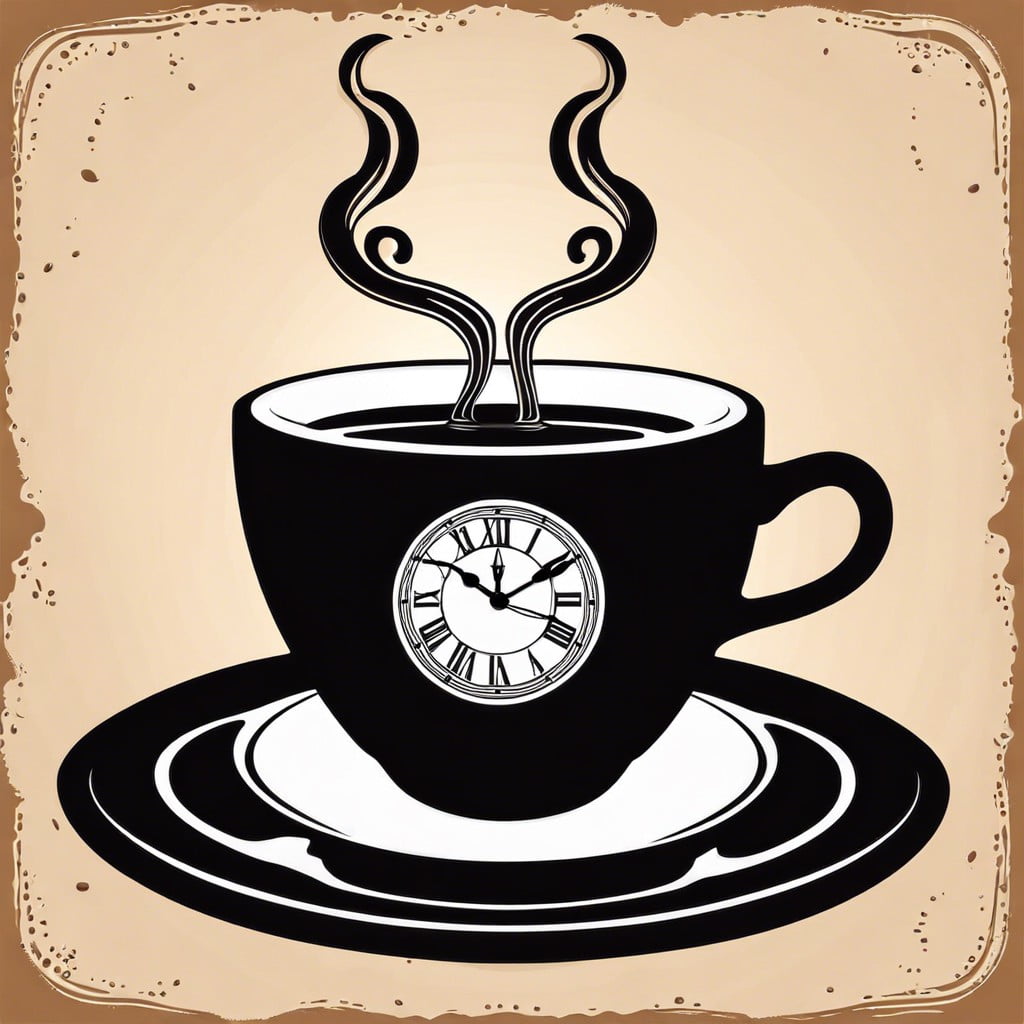Discover how quickly coffee can start boosting your energy levels and focus.
Factors Influencing Caffeine Activation Time

Several elements affect how quickly you feel the buzz from your cup of Joe. Firstly, your body mass and metabolism play crucial roles; a higher metabolism means faster caffeine absorption. Secondly, an empty stomach can lead to quicker caffeine hits, as food can slow down the process. Your genetic makeup also determines how efficiently your body processes caffeine. Additionally, the type of coffee and how it’s brewed can alter the speed of caffeine delivery. For instance, espresso tends to release its kick faster than a slow-brewed pour-over.
Average Time for Caffeine to Take Effect
Caffeine typically starts to energize you about 15 to 30 minutes after ingestion. This timing can vary based on the type of coffee and how it’s consumed. For instance, brewed coffee might hit someone faster compared to a cold brew due to differences in preparation and absorption rates.
The peak effects usually occur within about one hour. At this point, your alertness and concentration might feel at their highest. The body absorbs caffeine quickly from the stomach, and then it’s carried throughout the body, acting primarily on the brain.
For someone looking to time their coffee consumption to optimize alertness, consider these timelines. If you’re preparing for a meeting or a long drive, drinking coffee half an hour before should do the trick.
How Tolerance Levels Alter Caffeine Response Time
If you’re a seasoned coffee drinker, you might notice that your morning cup doesn’t quite give you the same buzz it used to. This change is due to developing a tolerance to caffeine. Over time, regular consumption of caffeine can cause your body’s response to diminish. This means you might need a higher dose to feel the same effects you once did with a smaller amount.
Tolerance levels vary widely among individuals. Factors such as metabolism speed, body mass, and even genetic makeup play roles. Here’s what you should know:
- Consistent use increases tolerance: ** The more frequently you consume caffeine, the more your body gets accustomed to it, requiring more to achieve the same alertness.
- Resetting tolerance is possible: ** Reducing caffeine intake or taking a break from caffeine can help lower your tolerance. This can make your body more responsive to caffeine when you reintroduce it.
- Individual variability: ** Some people may develop tolerance quicker than others. Listen to your body and adjust your caffeine intake accordingly to maintain its effectiveness.
Understanding these nuances can help you manage your caffeine consumption more effectively, keeping that cherished coffee kick within reach.
How Much Caffeine Is OK?
Determining an appropriate caffeine limit hinges on various factors including age, weight, and individual health conditions. Generally, adults can safely consume up to 400 milligrams of caffeine daily—about the amount in four eight-ounce cups of coffee. Pregnant individuals should limit their intake to about 200 milligrams per day. Exceeding these amounts may lead to restlessness, anxiety, heart palpitations, and disrupted sleep patterns. It’s wise to start with smaller amounts if you’re new to caffeinated beverages or monitor your reaction if you’re sensitive to stimulants. Always consider any specific medical advice from your healthcare provider regarding caffeine consumption.
How Long Does It Take for Caffeine to Wear Off?
Caffeine’s effects vary in duration but generally start to diminish within 3 to 5 hours. The decline, however, doesn’t mean the stimulant completely exits your system. A trace amount remains and can continue to affect sleep patterns. This lingering influence largely depends on individual metabolism but typically caffeine’s half-life – the time taken for half of the drug to be expelled from the body – ranges from 3 to 7 hours.
Specific factors, like whether you’re a regular coffee drinker, your age, weight, and certain medications, might extend caffeine’s presence in your system. For some, even a late afternoon coffee can disrupt a good night’s sleep. So, if you’re eyeing better sleep or less caffeine impact later in the day, consider timing your last cup around early afternoon.